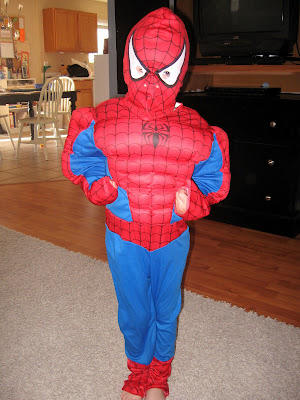I had a pretty good handle on our infertility. Several years removed from the monthly charting, lab tests, psycho medications and those beastly little home pregnancy tests, I was comfortable–content even–with the fact that our children would not come through biological means, but through the miracle of adoption.
It’s not that I was totally over it–I’m not sure that ever happens. But I was at a place where I didn’t think about it that much. I was honestly happy for friends and family who announced that they were expecting. I opened up about our experiences, trying to share with my "breeding" friends the new and exciting world of Open Adoption. I could see the blessings that had come to us through these struggles. I still didn’t attend most Baby Showers, but between you and me, it was more because I just hated those things rather than any real relation to my grief!
Gearing up for our 2nd adoption, I met with my doctor to have the required medical exam. A day later, I got a phone call from his office. My blood work had come back with a big surprise: I was pregnant! I was stunned. I will forever remember that moment: sitting in the hot sun on a pool chair, watching our son’s swimming lesson, asking the nurse if she was absolutely sure. "Yes," she said, I was "several weeks along."
How could this be? My doctors had said it would never happen. I was incredulous and grateful and excited. What a miracle that after nine years of negative results, it had finally just happened on its own!
I let myself go where I’d never allowed myself to go before: thinking about this baby. Was it a boy or a girl? What would it look like? Would it have the strong forehead/eyes of Brad’s family? Would it be a towhead like Brad was? He had been so supportive through the years. In his mind, it wasn’t my infertility, it was ours. Yet I had always felt remorse and guilt for being the reason we couldn’t conceive. To finally be able to bear a child was such a relief! I would no longer be "the infertile one." I would be able to contribute when the conversations among friends turned–as they always do–to childbirth! So much of our LDS culture revolves around "fulfilling the measure of our creation." Although I knew that I could do that without actually producing a child, it felt good that I was finally able to go the conventional route!
After letting it settle in for a few hours, I was determined to see for myself that it was true, so I headed down to the drug store. I was finally going to beat my nemesis, the Home Pregnancy Test!
Only I didn’t.
Another single line, just like the thousands of other single lines I’d gotten over the years. Another test a few hours later repeated the same result.
Although I was disappointed–and really annoyed that the test had beaten me again–I was perplexed but not too worried. After all, my blood results had come out positive. The doctor knows best, right?!
The next day on our way out of town, I zipped in to give another sample of blood, just to be sure. How ironic that Brad and I were headed to Dallas, where we were to attend an adoption conference, as well as interview with our adoption caseworker. In the middle of lunch, just before Brad was to present a class on "Coping With Your Infertility," (no I’m not joking!) I received the phone call I had been dreading: the lab had messed up somehow–I, in fact, was not pregnant. Never was. Talk about a cruel joke to play on an infertile lady!
What gets me is that I truly had made peace with not being a biological mother. But to have that hope–to believe that somehow a miracle had occurred, only to find out that it hadn’t–that was a big blow.
I don’t share this personal story to get pity or condolences. I share it to remind myself and others that grief over infertility–or anything, really–is a very real thing. The important thing is to let myself feel the pain, and acknowledge that it might never entirely go away. And that’s okay.
I’ve met some couples along the way, however, that don’t allow themselves to feel the pain of infertility. Instead they stuff it away and pretend it’s not there, and think that all they really need is a baby. So they begin the adoption process, with appreciation, but little tolerance for their child’s birth parents. Dealing with them is merely the means to an end. Once they get their baby, they don’t keep the promises they made regarding communication. They resent the fact that they have to communicate at all. This is their baby, now, after all. They don’t see how their infertility issues are adversely affecting their child.
Newsflash: Adoption does not cure the pain of infertility. Just as the birth mother bravely examined her options and chose what was best for her child, we also must step back and do what’s best for the child. We must celebrate who they are, and that includes where they came from
before they were with us. If my child grows up sensing secrecy and bad vibes about his birth family, he’s going to think there’s something fundamentally wrong with him. If he can see, however, that we love and honor his birth family, and talk freely and positively about them, he’ll feel much better about himself and his adoption.
Sometimes I wish that I had given birth to my son. It would certainly be less complicated. But I look at him, and I know that he wouldn’t be who he is today if he had my genes. I’m not threatened by his birth family. Instead, I welcome them into the circle of people who truly love him, and want what’s best for him.
A quote by a participant in Barbara Eck Menning’s Infertility study sums up how I feel about things: "My infertility," she says, "resides in my heart as an old friend. I do not hear from it for weeks at a time, and then, a moment, a thought, a baby announcement or some such thing, and I will feel the tug–maybe even be sad or shed a few tears. And I think, 'There’s my old friend.' It will always be a part of me."
So that's what I've been up to the last couple of weeks: visiting with an old friend. Not to be rude, but she stayed a little too long this time! I'm kind of glad she's gone for now.
















































































